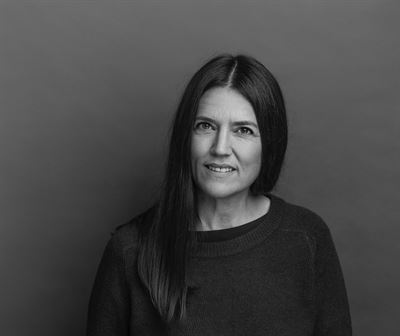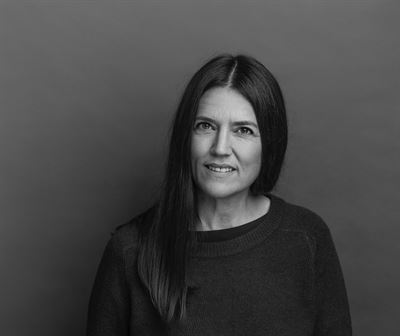Marknadsnyheter
Enhertu approved in the US for the treatment of patients with previously treated HER2-positive advanced gastric cancer
First HER2-directed medicine approved for patients with gastric cancer in a decade
AstraZeneca and Daiichi Sankyo Company, Limited (Daiichi Sankyo)’s Enhertu (trastuzumab deruxtecan) has been approved in the US for the treatment of adult patients with locally advanced or metastatic HER2-positive gastric or gastroesophageal junction (GEJ) adenocarcinoma who have received a prior trastuzumab-based regimen.
In the US, gastric cancer is most frequently diagnosed in the advanced stage, with only approximately 5% of patients surviving beyond five years.1,2 Approximately one in five gastric cancers are HER2 positive.3
The approval by the Food and Drug Administration (FDA) was based on the positive results from the randomised DESTINY-Gastric01 Phase II trial conducted in Japan and South Korea. In the trial, Enhertu demonstrated a statistically significant and clinically meaningful improvement in overall survival (OS) and objective response rate (ORR) versus chemotherapy (irinotecan or paclitaxel) in patients with advanced gastric cancer or GEJ adenocarcinoma who had progressed on at least two or more prior regimens including trastuzumab plus a fluoropyrimidine- and platinum-based chemotherapy combination.4
Ronan Kelly, MD, MBA, Director of the Charles A. Sammons Cancer Center and the W.W. Caruth, Jr. Chair of Immunology at Baylor University Medical Center, Dallas, Texas, US, said: “Patients with metastatic HER2-positive gastric cancer with progression following 1st-line treatment have historically faced poor outcomes, including low response to treatment and rapid disease progression. This approval represents the first time a HER2-directed medicine has demonstrated a significant improvement in survival compared to chemotherapy following initial treatment in the metastatic setting, and it has the potential to become the new standard of care for this patient population.”
Dave Fredrickson, Executive Vice President, Oncology Business Unit, said: “Today’s approval of Enhertu represents the first HER2-directed medicine approved in a decade for patients with HER2-positive metastatic gastric cancer. The results from the DESTINY-Gastric01 trial highlight the potential to change clinical practice, showing a 41 per cent improvement in survival and a response rate more than three times higher with Enhertu compared to chemotherapy. We are thrilled to bring this important medicine to more patients and physicians in the US.”
Antoine Yver, Executive Vice President and Global Head, Oncology Research and Development, Daiichi Sankyo, said: “Enhertu is the first antibody drug conjugate to receive approval in the US for the treatment of patients with metastatic gastric cancer, and represents a major advance in managing this difficult-to-treat disease. This second indication in the US represents an important step forward in our ambitious plan to accelerate the development of Enhertu across a broad range of HER2-targetable cancers.”
In a pre-specified interim analysis from the DESTINY-Gastric01 trial, patients treated with Enhertu had a 41% reduction in the risk of death versus patients treated with chemotherapy (based on a hazard ratio [HR] of 0.59; 95% confidence interval [CI] 0.39-0.88; p=0.0097) with a median OS of 12.5 months versus 8.4 months.3
Confirmed ORR, assessed by independent central review was a major efficacy outcome. Results showed a confirmed ORR of 40.5% in patients treated with Enhertu (n=126) compared to 11.3% in patients treated with chemotherapy (n=62). Patients treated with Enhertu had a 7.9% complete response rate and a 32.5% partial response rate compared to a complete response rate of 0% and a partial response rate of 11.3% for patients treated with chemotherapy.4
Enhertu demonstrated a median progression-free survival (PFS) of 5.6 months compared to 3.5 months with chemotherapy (HR=0.47; 95% CI 0.31-0.71). Additionally, Enhertu showed a median duration of response (DoR) of 11.3 months versus 3.9 months with chemotherapy.4
Results from the DESTINY-Gastric01 trial were published in The New England Journal of Medicine in June 2020.5
The most common adverse reactions, including laboratory abnormalities, of any grade (greater than or equal to 20%) for patients treated with Enhertu (n=125) in the DESTINY-Gastric01 trial were anaemia, leukopenia, neutropenia, lymphocytopenia, thrombocytopenia, nausea, decreased appetite, increased aspartate aminotransferase, fatigue, increased blood alkaline phosphatase, increased alanine aminotransferase, diarrhoea, hypokalaemia, vomiting, constipation, increased blood bilirubin, pyrexia and alopecia. Interstitial lung disease or pneumonitis occurred in 10% of patients.4
This is the second indication approved for Enhertu in the US following the accelerated approval for adult patients with unresectable or metastatic HER2-positive breast cancer who have received two or more prior anti-HER2-based regimens in the metastatic setting based on the DESTINY-Breast01 trial.
Enhertu was previously granted Priority Review, Breakthrough Therapy Designation (BTD) in HER2-positive metastatic gastric cancer and Orphan Drug Designation for gastric cancer by the FDA. Two additional Phase II trials, DESTINY-Gastric02 and DESTINY-Gastric03, are underway, further evaluating treatment with Enhertu in patients with HER2-positive metastatic gastric cancer.
Financial considerations
Following US approval, an amount of $115m is due from AstraZeneca to Daiichi Sankyo as a combined 2nd-line and 3rd-line milestone payment in HER2-positive gastric cancer. In AstraZeneca, the milestones paid will be capitalised as an addition to the upfront payment made in 2019 and subsequent capitalised milestones and amortised through the profit and loss.
Sales of Enhertu in the US are recognised by Daiichi Sankyo. AstraZeneca reports its share of gross profit margin from Enhertu sales in the US as collaboration revenue in the Company’s financial statements. For further details on the financial arrangements, please consult the collaboration agreement from March 2019.
Gastric cancer
Gastric (stomach) cancer is the fifth most common cancer worldwide and the third leading cause of cancer mortality with a five-year survival rate of 5% for metastatic disease; there were approximately one million new cases reported in 2020 and more than 768,000 deaths.6 In the US, it is estimated that 27,600 new cases of gastric cancer were diagnosed in 2020 and more than 11,000 people died from the disease.7
Approximately one in five gastric cancers are HER2 positive.1 HER2 is a tyrosine kinase receptor growth-promoting protein expressed on the surface of many types of tumours including breast, gastric, lung and colorectal cancers. Gastric cancer is usually diagnosed in the advanced stage, but even when diagnosed in earlier stages of the disease the survival rate remains modest.2 Recommended 1st-line treatment for HER2-positive advanced or metastatic gastric cancer is combination chemotherapy plus trastuzumab, an anti-HER2 medicine, which has been shown to improve survival outcomes when added to chemotherapy. For patients with metastatic gastric cancer that progresses following initial treatment with a trastuzumab-based regimen, there were previously no other approved HER2-targeted medicines prior to the approval of Enhertu.8
DESTINY-Gastric01
DESTINY-Gastric01 is a Phase II, open-label, multi-centre, randomised controlled trial testing the safety and efficacy of Enhertu (6.4 mg/kg) versus investigator’s choice of chemotherapy in a primary cohort of patients from Japan and South Korea with HER2-positive (defined as IHC3+ or IHC2+/ISH+), locally advanced or metastatic gastric cancer or GEJ adenocarcinoma who have progressed on at least two or more prior regimens including trastuzumab plus a fluoropyrimidine- and platinum-based chemotherapy combination. Patients (n=188) were randomised 2:1 to receive Enhertu or physician’s choice of chemotherapy (paclitaxel or irinotecan monotherapy). Patients were treated with Enhertu 6.4mg/kg once every three weeks or chemotherapy.
The main efficacy outcome measures were ORR, assessed by independent central review, and OS. Additional efficacy outcome measures were PFS and DoR.4
Enhertu
Enhertu (trastuzumab deruxtecan; fam-trastuzuab deruxtecan-nxki in the US) is a HER2-directed antibody drug conjugate (ADC). It is the lead ADC in the oncology portfolio of Daiichi Sankyo and the most advanced programme in AstraZeneca’s ADC scientific platform.
ADCs are targeted cancer medicines that deliver cytotoxic chemotherapy (‘payload’) to cancer cells via a linker attached to a monoclonal antibody that binds to a specific target expressed on cancer cells. Enhertu is comprised of a humanised anti-HER2 IgG1 monoclonal antibody with the same amino acid sequence as trastuzumab attached to a topoisomerase I inhibitor payload, an exatecan derivative, via a tetrapeptide-based cleavable linker.
Enhertu (5.4mg/kg) is approved in the US under accelerated approval, and in Japan under the conditional early approval system, for the treatment of adult patients with unresectable or metastatic HER2-positive breast cancer who have received two or more prior anti-HER2-based regimens in the metastatic setting based on the DESTINY-Breast01 trial. In addition to the US, Enhertu (6.4mg/kg) is also approved in Japan for patients with HER2-positive unresectable advanced or recurrent gastric cancer that progressed after chemotherapy based on the DESTINY-Gastric01 trial.
Development programme
A comprehensive development programme is underway globally, with nine registrational trials evaluating the efficacy and safety of Enhertu monotherapy across multiple HER2 cancers, including breast, gastric and lung cancers. Trials in combination with other anticancer treatments, such as immunotherapy, are also underway.
In May 2020, Enhertu received a BTD for the treatment of patients with metastatic non-small cell lung cancer whose tumours have a HER2 mutation and with disease progression on or after platinum-based therapy.
Daiichi Sankyo collaboration
Daiichi Sankyo and AstraZeneca entered into a global collaboration to jointly develop and commercialise Enhertu (a HER2-directed ADC) in March 2019, and datopotamab deruxtecan (a TROP2-directed ADC) in July 2020, except in Japan where Daiichi Sankyo maintains exclusive rights. Daiichi Sankyo is responsible for manufacturing and supply of Enhertu and datopotamab deruxtecan.
AstraZeneca in gastrointestinal cancers
AstraZeneca has a broad development programme for the treatment of gastrointestinal (GI) cancers across several medicines spanning a variety of tumour types and stages of disease. In 2020, GI cancers collectively represented over five million new cancer cases leading to more than 3.5 million deaths.6 Within this programme, the Company is committed to improving outcomes in gastric, liver, oesophageal, pancreatic, and colorectal cancers.
The Company aims to understand the potential of Enhertu in the two most common GI cancers, colorectal and gastric cancers. Imfinzi (durvalumab) is being assessed as both as monotherapy and in combinations including with tremelimumab across the two main types of liver cancer, hepatocellular carcinoma and biliary tract cancer, and in oesophageal and gastric cancers. Lynparza (olaparib) is a first-in-class PARP inhibitor with a broad and advanced clinical trial programme across multiple GI tumour types including pancreatic and colorectal cancers. Lynparza is developed and commercialised in collaboration with MSD (Merck & Co., Inc. inside the US and Canada).
AstraZeneca in oncology
AstraZeneca has a deep-rooted heritage in oncology and offers a quickly growing portfolio of new medicines that has the potential to transform patients’ lives and the Company’s future. With seven new medicines launched between 2014 and 2020, and a broad pipeline of small molecules and biologics in development, the Company is committed to advance oncology as a key growth driver for AstraZeneca focused on lung, ovarian, breast and blood cancers.
By harnessing the power of six scientific platforms – Immuno-Oncology, Tumour Drivers and Resistance, DNA Damage Response, Antibody Drug Conjugates, Epigenetics, and Cell Therapies – and by championing the development of personalised combinations, AstraZeneca has the vision to redefine cancer treatment and, one day, eliminate cancer as a cause of death.
AstraZeneca
AstraZeneca (LSE/STO/Nasdaq: AZN) is a global, science-led biopharmaceutical company that focuses on the discovery, development and commercialisation of prescription medicines, primarily for the treatment of diseases in three therapy areas – Oncology, Cardiovascular, Renal & Metabolism, and Respiratory & Immunology. Based in Cambridge, UK, AstraZeneca operates in over 100 countries and its innovative medicines are used by millions of patients worldwide. Please visit astrazeneca.com and follow the Company on Twitter @AstraZeneca.
Contacts
For details on how to contact the Investor Relations Team, please click here. For Media contacts, click here.
References
- Curea F.G, et al. Current Targeted Therapies in HER2-Positive Gastric Adenocarcinoma. Cancer Biotherapy & Radiopharmaceuticals. 2017;32 (10).
- American Cancer Society. Stomach Cancer: Early Detection, Diagnosis, and Staging. Available at: https://www.cancer.org/cancer/stomach-cancer/detection-diagnosis-staging/survival-rates.html.
- American Cancer Society. Stomach Cancer: Treating Stomach Cancer. Available at: https://www.cancer.org/cancer/stomach-cancer/treating/targeted-therapies.html.
- ENHERTU® [fam-trastuzumab deruxtecan-nxki] US prescribing information; 2021.
- Shitara, K et al. Trastuzumab Deruxtecan in Previously Treated HER2-Positive Gastric Cancer. N Engl J Med. 2020;382(25):2419-2430. DOI: 10.1056/NEJMoa2004413.
- Global Cancer Observatory. Cancer Today. Lyon, France: International Agency for Research on Cancer. Available at: https://gco.iarc.fr/today/data/factsheets/populations/900-world-fact-sheets.pdf .
- American Cancer Society. Stomach Cancer: About Stomach Cancer. Available at: https://www.cancer.org/cancer/stomach-cancer/about/key-statistics.html.
- NCCN Guidelines® Gastric Cancer. Version 4.2019. December 20, 2019: MS-22-36.
Marknadsnyheter
Regeringen föreslår lättnader i byggkraven för studentbostäder
Regeringen har beslutat om en lagrådsremiss med förslag till lättnader i byggkraven för studentbostäder. Syftet är att öka möjligheterna till flexibilitet vid byggandet.
– På många studieorter är det svårt för studenter att hitta boende. Därför behöver byggregelverket förenklas. Syftet är att möjliggöra för fler studentbostäder genom sänkta byggkostnader och ökad flexibilitet, säger infrastruktur- och bostadsminister Andreas Carlson.
Förslaget innebär att det blir möjligt att göra undantag från kraven på tillgänglighet och användbarhet i en byggnad som innehåller studentbostäder. Undantagen ska kunna tillämpas vid både nyproduktion och vid ändring av en byggnad.
Det ska vara möjligt att göra undantag för högst 80 procent av studentbostäderna i ett byggprojekt. Minst 20 procent av studentbostäderna ska fortfarande uppfylla gällande krav på tillgänglighet och användbarhet för personer med nedsatt rörelse- eller orienteringsförmåga.
Lagändringen ger större flexibilitet vid byggande av studentbostäder och skapar fler tänkbara sätt att utforma planlösningar. Till exempel kan bostadsytan minskas och fler bostäder rymmas inom en given yta.
De föreslagna undantagen ska inte hindra personer med funktionsnedsättning att vara delaktiga i sociala sammanhang. En studentbostad som omfattas av undantagen ska kunna besökas av en person med nedsatt rörelse- eller orienteringsförmåga.
Regeringen breddar också definitionen av studentbostäder till att inkludera all vuxenutbildning för att göra det möjligt för fler kommuner att erbjuda studentbostäder.
Förslagen föreslås träda i kraft den 1 juli 2025.
Lagrådsremissen: Lättnader i byggkraven för studentbostäder – Regeringen.se
Presskontakt
Ebba Gustavsson
Pressekreterare hos infrastruktur- och bostadsminister Andreas Carlson
Telefon (växel) 08-405 10 00
Mobil 076-12 70 488
ebba.gustavsson@regeringskansliet.se
Marknadsnyheter
Bönor från egen kaffeskog, sump till jord – Viking Lines nya kaffe gör gott på många olika sätt


Viking Lines resenärer dricker varje år 8,5 miljoner koppar kaffe. Nu satsar rederiet på ett helt nytt kaffe som ger minskade klimatutsläpp och bättre levnadsvillkor för odlarna. Kaffet från Slow Forest odlas på rederiets egen odling i Laos utan kemiska gödningsmedel, handplockas och rostas därefter i Danmark.
Allt kaffe som serveras på Viking Lines fartyg är nu hållbart producerat Slow Forest-kaffe, odlat på rederiets 75 hektar stora odling på högplatåerna i Laos och rostat i Danmark. Kaffeplantorna odlas bland träd på återbeskogad mark, i stället för på traditionellt skövlade plantager. Viking Lines odling ligger i en kolsänka där målsättningen är att plantera 30 000 träd, vilket innebär nästan 400 träd per hektar. Kaffeskogen förbättrar också den lokala biologiska mångfalden i området.
Odlingen, bearbetningen och rostningen av kaffet hanteras av Slow Forest Coffee. För företaget är det viktigt att produktionskedjan är rättvis och transparent. Utöver miljöfördelarna erbjuder Slow Forest bättre lönevillkor och sjukersättning för byns odlare.
”Den traditionella kaffetillverkningens koldioxidavtryck är stort och merparten av intäkterna går till Europa i stället för produktionsländerna. Vi ville göra annorlunda. Våra kunder vill göra hållbara val, och nu kan de njuta av sitt kaffe med bättre samvete än någonsin tidigare,” berättar Viking Lines restaurangchef Janne Lindholm.
Bönorna till Slow Forest-kaffet får sakta mogna i skuggan av träden, utan kemiska gödningsmedel. De plockas också för hand, vilket avsevärt förbättrar kaffets kvalitet och smak. Viking Lines nya kaffe består till 100 procent av Arabica-bönor, med en balanserad syrlighet samt smak av nötter och choklad. Rostningsprofilen har skapats av den världsberömda danska rostningsmästaren Michael de Renouard.
”Vi valde en mörkrost till fartygets kaffe, vilket passar både finländarnas och svenskarnas nuvarande smakpreferenser gällande rostning. Finländarnas smak gällande kaffe har under de senaste åren utvecklats mot en mörkare rostning. Innan vi gjorde vårt slutgiltiga val testades det nya kaffet i Viking Cinderellas bufférestaurang och personalmässen – och båda testgrupperna gav toppbetyg. Då 8,5 miljoner koppar kaffe bryggs varje år kan inget lämnas åt slumpen!” säger Janne Lindholm.
Viking Lines hållbarhetsmål stannar inte vid produktionskedjan. Kaffesump från fartygen återvinns nämligen som råmaterial för trädgårdsjord. Detta minskar avsevärt användningen av jungfrulig torv vid tillverkningen av mylla.
”Vi har som mål att allt som tagits ombord på fartygen som är möjligt att återvinna ska återanvändas eller återvinnas. Det gäller inte bara kaffet utan även matavfall och till exempel textilier som tas ur bruk. Ett bra exempel på vårt livscykeltänkande är att frityrolja från fartygets restauranger blir till biobränsle för den finska sjöfartsindustrin,” säger Viking Lines hållbarhetschef Dani Lindberg.
Slow Forest Coffee – 5 fakta:
- Slow Forest Coffee är ett kaffeföretag som verkar i Laos, Vietnam och Indonesien i samarbete med över 500 lokala kaffeodlare.
- Företaget grundades år 2019 av Pinja Puustjärvi, driven av en vilja att skydda skogarna i Laos och stötta lokala odlare. Puustjärvi bodde som barn i Laos på grund av sin fars arbete.
- Kaffet odlas i restaurerade kaffeskogar, som binder stora mängder kol och ökar den biologiska mångfalden.
- Det är viktigt för företaget att produktionskedjan är ansvarsfull och transparent, samt att verksamheten gynnar både miljön och de lokala samhällena.
- Slow Forest Coffee betalar odlarna bättre ersättning än genomsnittet i Laos och erbjuder förmåner som underlättar deras liv: förskottsbetalningar, utbildning och möjligheten att låna pengar från en krisfond.
Mera infomation om Slow Forest Coffee här
Tilläggsinformation:
Janne Lindholm, restaurangchef
janne.lindholm@vikingline.com, tel. +358 400 744 806
Dani Lindberg, hållbarhetschef
dani.lindberg@vikingline.com, tel. +358 18 27 000
Johanna Boijer-Svahnström, informationsdirektör
johanna.boijer@vikingline.com, tel. +358 18 270 00
Christa Grönlund, informationschef
christa.gronlund@vikingline.com, tel. +358 9 123 51
Marknadsnyheter
“Vi behöver tillsammans enas om vettiga avtal, som sätter standard för branschen”


Sveriges Radios Kulturnytt gör just nu en mycket välkommen granskning av villkoren i musikbranschen. Igår lyftes artisten Siw Malmkvists situation med ett avtal som inte förnyats på över 60 år. Hennes situation är tyvärr långt ifrån unik. Musikerförbundet har länge uppmärksammat att majorbolagen fortsätter att betala extremt låga royaltynivåer till artister vars kontrakt skrevs på 1960-talet – en tid då digital streaming inte existerade.
– Jag kan intyga att artisterna som talar ut i P1 är långt ifrån ensamma om sin situation och vi uppmanar deras artistkollegor att gå ut med sitt tydliga stöd till de som vågar bryta tystnaden om oskäliga ersättningar, säger Musikerförbundets ordförande Karin Inde.
Musiker och artister skapar det värde som skivbolagen tjänar pengar på, men ändå ser vi gång på gång hur bolagen behåller stora delar av intäkterna. Att en av Sveriges mest folkkära artister, med en karriär som sträcker sig över decennier, fortfarande har en oskälig royalty är ett tydligt bevis på branschens obalans.
– Tystnadskulturen kring prissättning är enbart bra för bolagen. Både artister och musiker skulle verkligen tjäna på att dela med sig till varandra om hur betalningar och dealar verkligen ser ut. Förstås i trygga, egna rum. Det är bara bolagen som tjänar på att vi inte pratar med varandra om pengar, säger Karin Inde.
Stort tack till de modiga artister som ser till att lyfta problematiken! För att vi ska få till en i grunden mer rättvis musikbransch behöver de stora parterna i sammanhanget – skivbolagen, musikerna och artisterna – göra som de flesta andra svenska branscher lyckas med:
– Vi behöver tillsammans enas om vettiga och balanserade avtal, som sätter standard för branschen. Musikerförbundet är redo att göra vår del i arbetet för bättre villkor i musikbranschen, frågan är om skivbolagen är redo, säger Karin Inde.
Karin Inde
Förbundsordförande
karin.inde@musikerforbundet.se
+46 (0)704447228
Musikerförbundet är fackförbundet för professionella musiker och artister. Vi arbetar för förbättrade upphovsrättsliga och arbetsrättsliga villkor och för att våra medlemmar ska få en rättvis del av de värden de skapar i samhället.
-
Analys från DailyFX10 år ago
EUR/USD Flirts with Monthly Close Under 30 Year Trendline
-

 Marknadsnyheter2 år ago
Marknadsnyheter2 år agoUpptäck de bästa verktygen för att analysera Bitcoin!
-
Marknadsnyheter5 år ago
BrainCool AB (publ): erhåller bidrag (grant) om 0,9 MSEK från Vinnova för bolagets projekt inom behandling av covid-19 patienter med hög feber
-
Analys från DailyFX12 år ago
Japanese Yen Breakout or Fakeout? ZAR/JPY May Provide the Answer
-

 Marknadsnyheter2 år ago
Marknadsnyheter2 år agoDärför föredrar svenska spelare att spela via mobiltelefonen
-
Analys från DailyFX12 år ago
Price & Time: Key Levels to Watch in the Aftermath of NFP
-
Analys från DailyFX8 år ago
Gold Prices Falter at Resistance: Is the Bullish Run Finished?
-

 Nyheter7 år ago
Nyheter7 år agoTeknisk analys med Martin Hallström och Nils Brobacke

